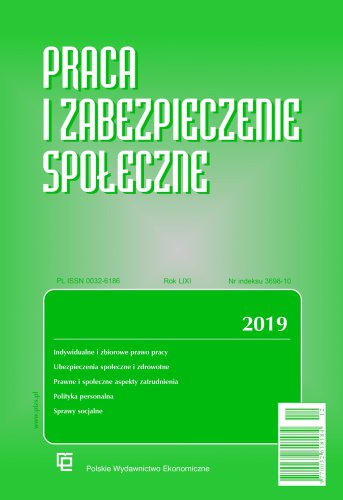Personal bankruptcy and the protection of salary
The protection of salary is an important issue when personal bankruptcy is declared with respect to a natural person who does not conduct business activity. Pursuant to the provisions of the bankruptcy law and the provisions of the Labour Code, the salary is divided into two parts: the one that forms a part of the bankrupt person’s assets (masa upadłości) managed by an insolvency administrator (syndyk) and the one that is excluded from the bankrupt person's assets and remains available to the bankrupt person’s disposal. During insolvency proceedings (i.e. from the date when bankruptcy is declared to the date when the repayment plan order becomes final and binding or debts are written off without any repayment plan, or when the court decision to discontinue the proceedings becomes final and binding) claims are set-off against the bankrupt person’s salary. The part of the salary against which claims may be set-off forms a part of the bankrupt person's assets and serves to satisfy claims to be made by creditors and listed on the list of debts. This part is also used to cover the cost of insolvency proceedings and other liabilities payable from the bankrupt person's assets. The money excluded from the bankrupt person's assets, including the part of the salary that cannot be seized, constitute their sole means of subsistence. The right of the bankrupt person to their salary may be violated in particular when excessive amounts are deducted from the salary or such amounts are deducted for an excessively long period of time.
References
Bibliografia
Adamus, R. (2017). W: R. Adamus, M. Geromin, B. Groele (red.), Upadłość konsumencka. Komentarz. Warszawa: C.H. Beck.
Brol, J. (1977). Potrącenia z wynagrodzenia za pracę. Praca i Zabezpieczenie Społeczne, (11).
Chrapoński, D. (2012). W: A. Witosz, J. Witosz (red.), Prawo upadłościowe i naprawcze. Komentarz. Warszawa: Wydawnictwo Prawnicze LexisNexis.
Florek, L. (2012). Prawo pracy. Warszawa: C.H. Beck.
Jagieła, J. (2000). W: K. Piasecki (red.), Kodeks postępowania cywilnego. Komentarz. Tom II. Warszawa: C.H. Beck.
Jakubecki, A. (2015). Główne kierunki zmian w tzw. upadłości konsumenckiej w świetle nowelizacji Prawa upadłościowego i naprawczego z dnia 24 sierpnia 2014 r. W: J. Mojak, A. Żywicka (red.), Ochrona praw konsumenta. Stan obecny i perspektywy. Lublin: Wydawnictwo ,,Inovatio Press”.
Julke, G. (2005). Egzekucja z wynagrodzenia za pracę. Sopot: Currenda.
Marciniak, A. (2000). W: K. Piasecki (red.), Kodeks postępowania cywilnego. Komentarz. Tom II. Warszawa: C.H. Beck.
Siedlecki, W. (1969). W: Z. Reisich, W. Siedlecki (red.), Kodeks postępowania cywilnego. Komentarz. Tom II. Warszawa: Wydawnictwa Prawnicze.
Wagner, B. (2005). W: L. Florek (red.), Kodeks pracy. Komentarz. Warszawa: Dom Wydawniczy ABC.
Walczak, K. (2012). W: K. Walczak (red.). Komentarz do kodeksu pracy. Warszawa: C.H. Beck.
Zimmerman, P. (2015). Prawo upadłościowe i naprawcze. Komentarz. Warszawa: C.H. Beck.
Zimmerman, P. (2016). W: A. Hrycaj, A. Jakubecki, A. Witosz (red.), System prawa handlowego. Tom 6. Prawo restrukturyzacyjne i upadłościowe. Warszawa: C.H. Beck.

